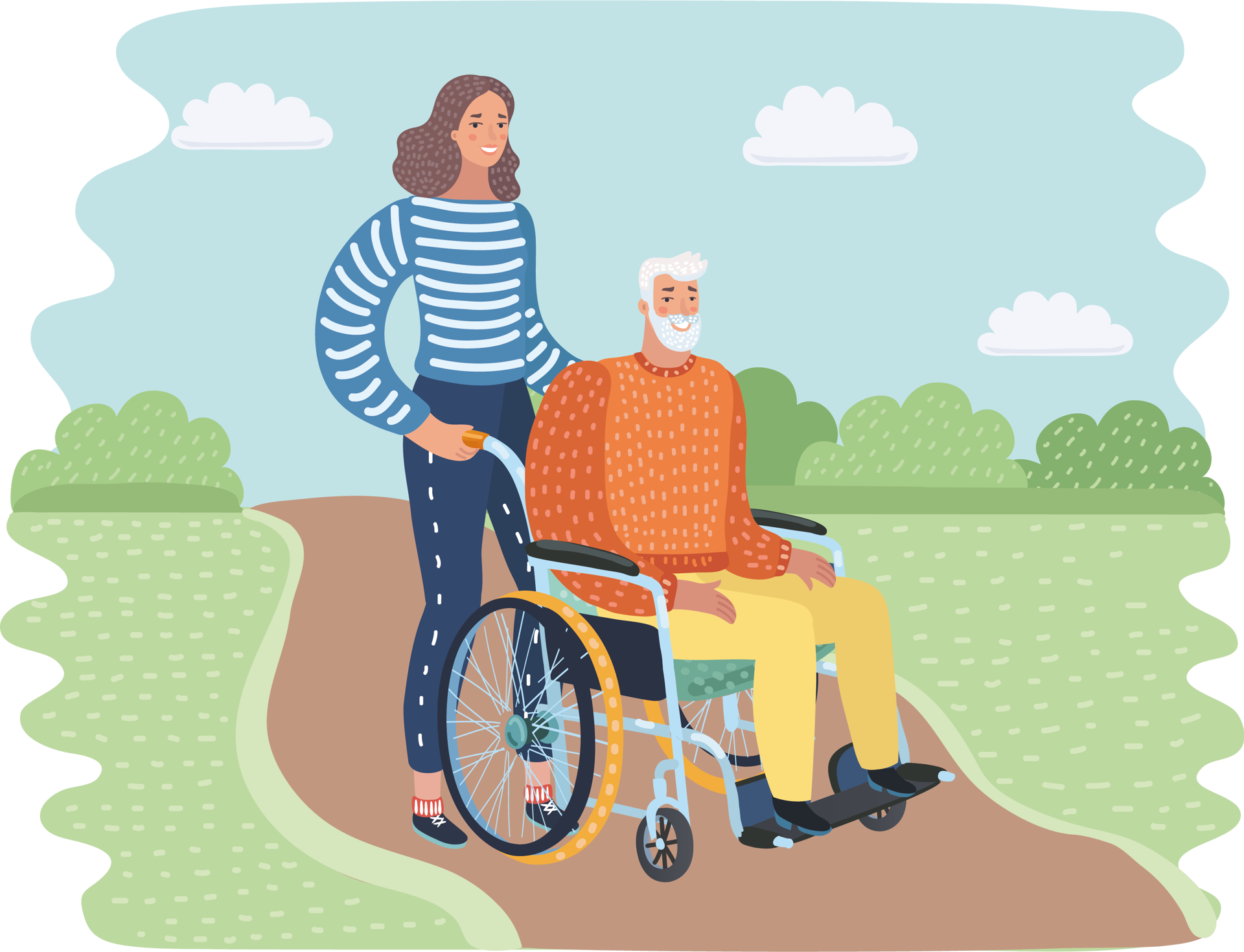Health Awareness and Preventive Health Care
We believe in the importance of informing and supporting our Clients at all stages. This helpful guide explains the simple steps you can take to stay on top of your health.

- National Site
- Information & Support
- Health Awareness
How to monitor the health of an individual
There are many tests that you can arrange to monitor your health, at home or with a health professional. These tests include:
- Overall health checks
- Blood pressure checks
- Diabetes checks
- Eye tests
- Hearing checks
Keeping on top of your health is important for any person, but it becomes especially important as we age. As we get older, the risk factors for certain diseases increase.
Your health is affected by a number of different factors such as your family’s medical history and the environment and climate you live in. There are factors that we can control or take preventative measures to support us in keeping healthy. As well as regular exercise and eating a well-balanced diet, you can book appointments for a check-up.
To see how we can help you or a loved one to improve your health awareness, discover our trusted homecare services.
Overall Health Checks in the UK
If you reside in the UK and are between the ages of 40-74, you can book a free NHS health check every 5 years. If you have a pre-existing medical condition, or if you have had a stroke, you may need to speak to your doctor about a more specific health check.
Local authorities are responsible for these preventative healthcare checks and they will invite you for a free check-up when they have time slots available. The check will take up to 30 minutes and includes the following:
- Cancer screening
- Heart disease screening
- Diabetes screening
- Kidney disease screening
- Stroke screening
As part of an overall health check-up, your doctor will tell you how to lower the risk of life-altering conditions. They will also discuss with you how to prevent dementia. If you’re over 65, you’ll be given advice on the signs of dementia to look out for.
If you learn of a specific condition at your health check, explore our specialist services. We offer specialised support, including cancer care, help with diabetes and stroke rehabilitation.

Blood pressure checks
Blood pressure checks are used to measure the blood pressure in your arteries. Having a higher blood pressure can increase your risk of heart attack and stroke. There are many ways to check your blood pressure.
Where to get your blood pressure checked
You can ask for a blood pressure check to keep an eye on your health at:
- Your GP surgery
- Pharmacies, such as Boots or Superdrug
- Some workplaces
- An NHS health check
How to check blood pressure at home
If you need to check your blood pressure regularly, the most convenient way is to monitor your blood pressure at home. Many of our specialist CareGivers are trained to carry out blood pressure checks. They can also explain how to interpret the results and suggest what to do next.
Our partners at the British Heart Foundation have lots of useful resources to help you to understand your blood pressure readings and to maintain a healthy blood pressure.
Explore the British Heart Foundation’s blood pressure guide.

Diabetes Checks
The two most common types of diabetes are Type 1 and Type 2. Both of these types can cause long-term damage if left untreated. However, with the right treatment, these conditions are easily managed.
The only way to find out if you have diabetes is from blood tests that measure your blood sugar levels. You can arrange these specialist blood tests with your GP. If you have regular checks, your GP will let you know when you are due for a blood test.
However, if you notice any symptoms in between visits, you should inform your GP straight away.
Common symptoms of diabetes include:
- Urinating more often
- Feeling thirsty
- Feeling hungry, despite eating your usual amount
- Fatigue
- Blurry vision
- Injuries that are slow to heal
- Weight loss
- Tingling/numbness in the hands and feet
Being aware of your health issues and booking in for regular blood tests and health checkups can help you to manage any potential or existing conditions. If you’re concerned about developing diabetes or have a family history of the condition, check in with your GP for advice.
If you do receive a positive result, don’t worry. Our specialist services can help you live an independent life with diabetes.
Eye tests
Regular eye tests play an important part in preventative healthcare. Eye tests are important for maintaining good vision, and they can also help to identify broader underlying issues. Eye tests can also detect early signs of eye conditions such as glaucoma.
It’s time to book an eye test if:
- You don’t know when you last had an eye test
- Your vision is worsening
- You have a family history of eye diseases
- You have allergies
There are a number of places that offer eye tests and if you are over 60, you can get free eye tests on the NHS. Appointments are easy to book, either over the phone or online, and the optician will book you in as soon as possible.
Hearing checks
As we age, it’s fairly common to develop hearing loss. People with hearing loss may find it difficult to have conversations with friends and family, watch TV, or hear alarms and doorbells. According to the National Institute of Deafness, approximately 1 in 3 people between the ages of 65 - 74 have hearing loss. In fact, nearly half of people over 75 have hearing difficulties!
Prevent hearing loss by wearing ear protection around loud noises, like lawnmowers. Or invest in headphones that block out background noise.
Did you know: hearing checks are also important for minimising the risk of developing dementia.
Have your hearing checked by visiting your primary care provider, or book a free hearing test at Boots.
How can Right at Home help with your health?
For help getting to and from appointments, our care at home services can help.
We can offer support with the following:
- Medication reminders and support
- Personal hygiene
- Shopping for healthy foods
- Running errands, including picking up medication
- Transportation to and from GP appointments
Our highly-trained CareGivers are on hand to encourage independence and improve quality of life. For more information, find your local office today and see how we can help.
We have offices operating across England, Scotland, and Wales
;)

